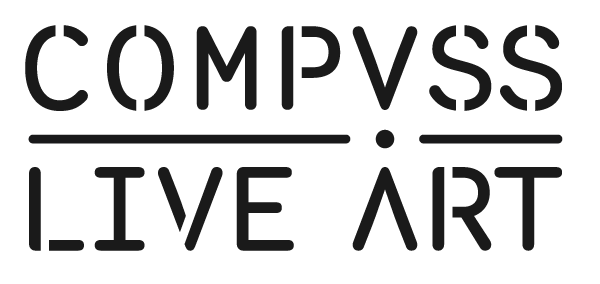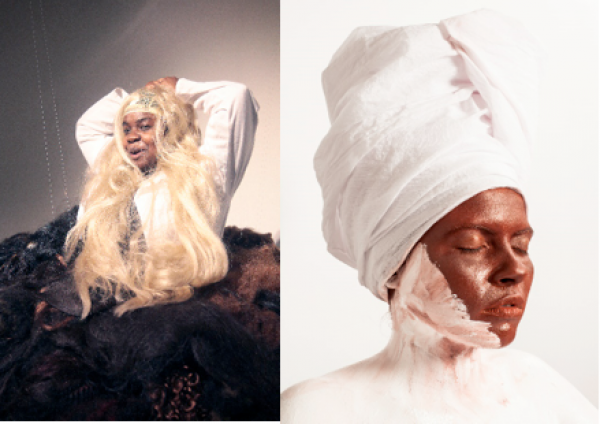Events
14 August 2015 - 16 August 2015
DIY 12: Spaces of Radical Agency
A two day retreat exploring how we may transform the ‘safe space’ into a place for radical change.
APPLY BELOW
Following successful residencies in 2013 and 2014, Compass are pleased to be hosting Selina Thompson and Ria Hartley in Yorkshire for their DIY 12 Project.
Project Summary
Over the next few years, we are explicitly looking at race and identity as core and central concerns in our respective research projects. As we journey through these topics, we time and again return to the term ‘safe space’ – a concept prevalent in radical feminist work, where activists seek out, and construct, spaces to speak freely about oppression and struggle.
Whilst these spaces are undeniably valuable in times of crisis, we feel a need to explore how we, as artists, stand in those spaces.
What are safe spaces? Do artists, in general, get to have safe spaces? Why should we have safe spaces? And why might black (politically black) artists in particular need that space? Who gets to be in a safe space, who gets to define that and how do you ensure that those that need it most have access to it? Does there need to be a tension and difficulty within those spaces? How do we ensure that a ‘safe space’ becomes radical, political and vital – a place of revolution, action and change, rather than a talking shop? And what is the legacy of the safe space? How do we carry its energy forwards, approaching our work with integrity and rigor?
We want to take some time - and some artists - who are interested in these questions too, and spend a weekend interrogating and destabilising ‘the safe space’ to see how we can reframe it as a site of radical agency.
Throughout the retreat we will examine and question how these spaces might shape our work, the potential for both positive and negative outcomes and their use as spaces of developing effective communication, points of understanding of varied experiences, considering multiple perspectives, and talking openly in respect, solidarity and support. We also want to explore and question the potential of these spaces as sites of radical activity, or as the springboard into radical activity that happens outside the ‘safe space’ itself and its role in facilitating this.
Selina Thompson & Ria Hartley.
Dates, Times and Locations
14/15/16 August
Location TBC, but likely to be somewhere peaceful and beautiful (and warm, we hope!) in the Yorkshire Dales
Application Procedure
Applying the current UK terminology, this DIY is for BAME, politically black, ethnically/culturally diverse, artists of colour at any stage of their practice interested in the politics of their identities in relationship to the wider British context, and in particular their artistic practice in relationship to the arts and cultural sector. We welcome artists with any amount of experience and at any stage of their career. The important factor for selecting the participants is the way in which they demonstrate an existing practice which addresses issues related to body politics and representation.
To apply please send a copy of your CV, and one side of A4 comprising of:
- A biography, introducing us to your practice and research concerns
- Details of work you have done/are doing/are about to embark on that speaks to identity and/or race
- Some text responding to the question ‘what does a safe space mean to you?’.
Please email these (in PDF format) to [email protected] and [email protected] cc'ing Aaron Wright [email protected]
About the Artists
Selina Thompson is an artist and performer based in Leeds. Her work is playful, participatory and intimate, focused on the politics of identity, and how this defines our bodies, lives and environments. She has made work for pubs, cafes, hairdressers, toilets, and sometimes even galleries and theatres, including Spill Festival of Performance, Fierce Festival, The National Theatre Studio, The Birmingham REP, East Street Arts and the West Yorkshire Playhouse.
Ria Hartley is an interdisciplinary solo artist based in Bristol, UK. Her practice pays close attention to memory, identity, human relationships, and shared narratives and often invites participation and exchange between herself and her audiences, seeking to blur the relationship between performer and audience, space and situation in order to open new spaces of thought and exchange. Ria has taught as an Associate Lecturer in Theatre at Falmouth (2010 - 2013) and Plymouth University (2012), she is a member of Residence Collective and Co-Director of the Solo Contemporary Performance Forum.


